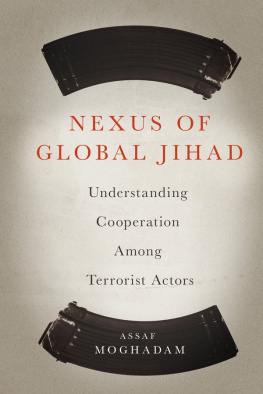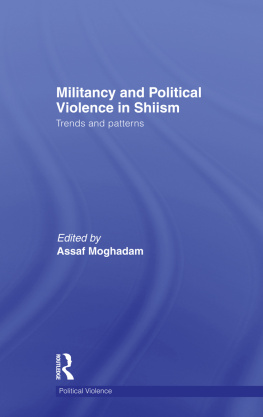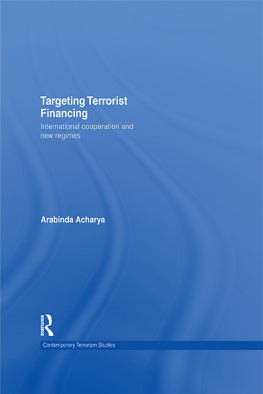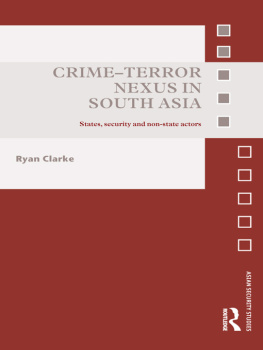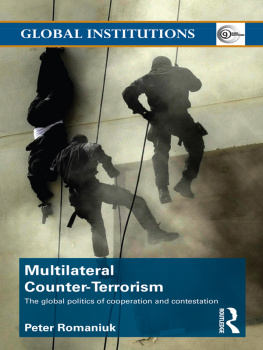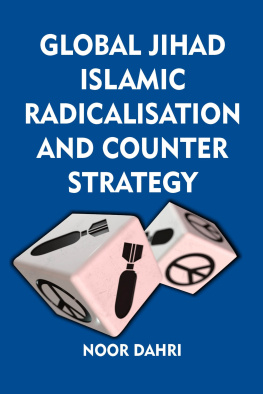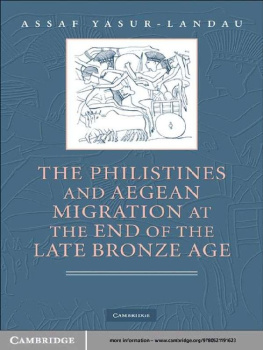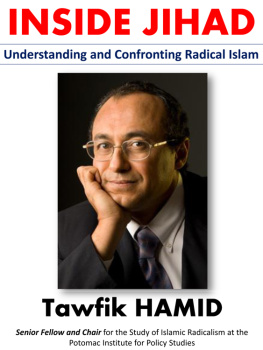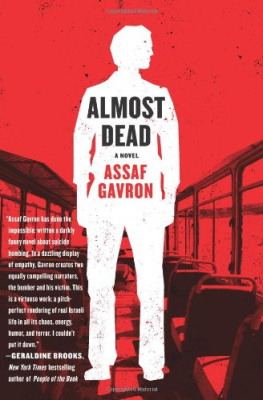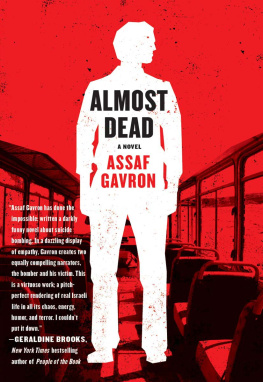COLUMBIA STUDIES IN TERRORISM AND IRREGULAR WARFARE
Bruce Hoffman, Series Editor
This series seeks to fill a conspicuous gap in the burgeoning literature on terrorism, guerrilla warfare, and insurgency. The series adheres to the highest standards of scholarship and discourse and publishes books that elucidate the strategy, operations, means, motivations, and effects posed by terrorist, guerrilla, and insurgent organizations and movements. It thereby provides a solid and increasingly expanding foundation of knowledge on these subjects for students, established scholars, and informed reading audiences alike.
Ami Pedahzur, The Israeli Secret Services and the Struggle Against Terrorism
Ami Pedahzur and Arie Perliger, Jewish Terrorism in Israel
Lorenzo Vidino, The New Muslim Brotherhood in the West
Erica Chenoweth and Maria J. Stephan, Why Civil Resistance Works: The Strategic Logic of Nonviolent Resistance
William C. Banks, New Battlefields/Old Laws: Critical Debates on Asymmetric Warfare
Blake W. Mobley, Terrorism and Counterintelligence: How Terrorist Groups Elude Detection
Jennifer Morrison Taw, Mission Revolution: The U.S. Military and Stability Operations
Guido W. Steinberg, German Jihad: On the Internationalization of Islamist Terrorism
Michael W. S. Ryan, Decoding Al-Qaedas Strategy: The Deep Battle Against America
David H. Ucko and Robert Egnell, Counterinsurgency in Crisis: Britain and the Challenges of Modern Warfare
Bruce Hoffman and Fernando Reinares, editors, The Evolution of the Global Terrorist Threat: From 9/11 to Osama bin Ladens Death
Boaz Ganor, Global Alert: The Rationality of Modern Islamist Terrorism and the Challenge to the Liberal Democratic World
M. L. R. Smith and David Martin Jones, The Political Impossibility of Modern Counterinsurgency: Strategic Problems, Puzzles, and Paradoxes
Elizabeth Grimm Arsenault, How the Gloves Came Off: Lawyers, Policy Makers, and Norms in the Debate on Torture
Columbia University Press
Publishers Since 1893
New York Chichester, West Sussex
cup.columbia.edu
Copyright 2017 Assaf Moghadam
All rights reserved
E-ISBN 978-0-231-53815-2
Library of Congress Cataloging-in-Publication Data
Names: Moghadam, Assaf, 1974 author.
Title: Nexus of global Jihad : understanding cooperation among terrorist actors / Assaf Moghadam.
Description: New York : Columbia University Press, [2017] | Series: Columbia studies in terrorism and irregular warfare | Includes bibliographical references and index.
Identifiers: LCCN 2016056245 (print) | LCCN 2017014117 (ebook) | ISBN 9780231165372 (cloth : alk. paper)
Subjects: LCSH: Terrorism. | TerrorismReligious aspectsIslam. | CooperationPoliitcal aspects. | Strategy. | Alliances.
Classification: LCC HV6431 (ebook) | LCC HV6431 .M634 2017 (print) | DDC 363.325dc23
LC record available at https://lccn.loc.gov/2016056245
A Columbia University Press E-book.
CUP would be pleased to hear about your reading experience with this e-book at .
Cover design: Martin N. Hinze
T his book has been several years in the making and would not have seen the light of day were it not for the support I received along the way from my family, friends, colleagues, research assistants, and students.
My first thanks goes to the administration and faculty at the Interdisciplinary Center Herzliya (IDC), which welcomed me with open arms when it became my new academic home in February 2011. I would like to thank Uriel Reichman, the IDCs president, for continuing to steer this uniquely vibrant institution with inspiring leadership and vision. I would also like to extend my gratitude to the IDCs provost, Mario Mikulincer, and to its vice president, Jonathan Davis, for their contributions to making the IDC the success story that it has become.
The Lauder School of Government, Diplomacy, and Strategy at IDC has served as an intellectually stimulating environment for me to pursue my research. I would like to thank Boaz Ganor, the Lauder Schools dean, for his leadership and friendship. For their helpful comments, suggestions, and encouragement, I would also like to thank my Lauder School colleagues Dima Adamsky, Amnon Cavari, Asif Efrat, Sivan Hirsch-Hoefler, Amichai Magen, Shavit Matias, Alex Mintz, Shaul Mishal, Daphne Richemond-Barak, Liza Saban, and Lesley Terris. Special thanks go to Maoz Rosenthal, who has been especially generous with his time and who provided sage advice throughout the life of the project.
I am also grateful to my colleagues and the capable support staff at the International Institute for Counter-Terrorism (ICT), a home within a home at IDC, led by Boaz Ganor and Deputy Director Eitan Azani. I have benefited in particular from discussions with Yoni Fighel. My valued colleague Ely Karmon shared with me some of his immense knowledge of terrorism, read the entire manuscript, and provided many helpful comments. Stevie Weinberg, ICTs indispensable director of operations, deserves special thanks for sharing his insights on jihadism in Belgium.
I have been fortunate to be able to count on a small army of capable and dedicated research assistants. The fruits of their labor are found on every page of this book. They include Amber Atteridge, Ria Barber, Kasey Barr, Eli Cornblit, Robby Dunn-Bernstein, Nirran Hebron, David Hoffman, Tali Jona, Hannah Katz, Eve Mamane, Gilad Mayer, Kajsa Mayo, Robert Pulwer, Gideon Scher, Nicolas Seidman, Tal Shaanan, Yael Shuval, Liat Studnik, and Ranan Tannenbaum. I would like to highlight in particular the outstanding contributions of five research assistants. Zachary Schenk has done a phenomenal job gathering information on AQAP and terrorist entrepreneurs. Danit Gal has contributed substantial portions to the discussion on the use of the Internet for terrorist cooperation. Michel Wyss, an expert on jihadism in his own right, provided many insightful comments, while correcting a few mistakes along the way. Polina Beliakova deserves my gratitude for her careful reading of the text and her outstanding comments throughout, especially on the theoretical sections of the book. Finally, Ronit Berger has played multiple critical roles in this book from the very outset, which included not only coordinating the entire project but also serving as a sounding board for my half-baked ideas. She too provided many useful comments that strengthened the final product significantly.
I have also benefited from comments I received from IDC students, especially those in the MA Program in Counter-Terrorism and Homeland Security between the years 2012 and 2016.
In addition, I am indebted to a large number of colleagues who have contributed to this book by offering words of encouragement, advice, and guidance or by inspiring me through their own work on terrorism. I owe a particular debt to Bruce Hoffman, a dear friend, colleague, and mentor who never hid his enthusiasm for this research project and supported it from day one. I am also grateful to Martha Crenshaw, a valued friend and colleague who personifies intellectual excellence and curiosity and serves as an inspiration to me and countless other students of terrorism. For their valuable advice on this project I would like to thank in particular Max Abrahms, Gary Ackerman, Benjamin Acosta, Rogelio Alonso, Aymenn Jawad al-Tamimi, Peter Bergen, J. M. Berger, Michael Boyle, Bill Braniff, Alexander Evans, Brian Fishman, James Forest, Daveed Gartenstein-Ross, Ogen Goldman, Thomas Hegghammer, Matthew Levitt, Shiraz Maher, Alexander Meleagrou-Hitchens, Barak Mendelsohn, Yassin Musharbash, Ami Pedahzur, Arie Perliger, Brian Philipps, Bryan Price, Paul Quinn, Don Rassler, Fernando Reinares, Alex Schmid, Yoram Schweitzer, Richard Shultz, Guido Steinberg, Jessica Stern, Clint Watts, Florian Wtzel, and Aaron Zelin.



